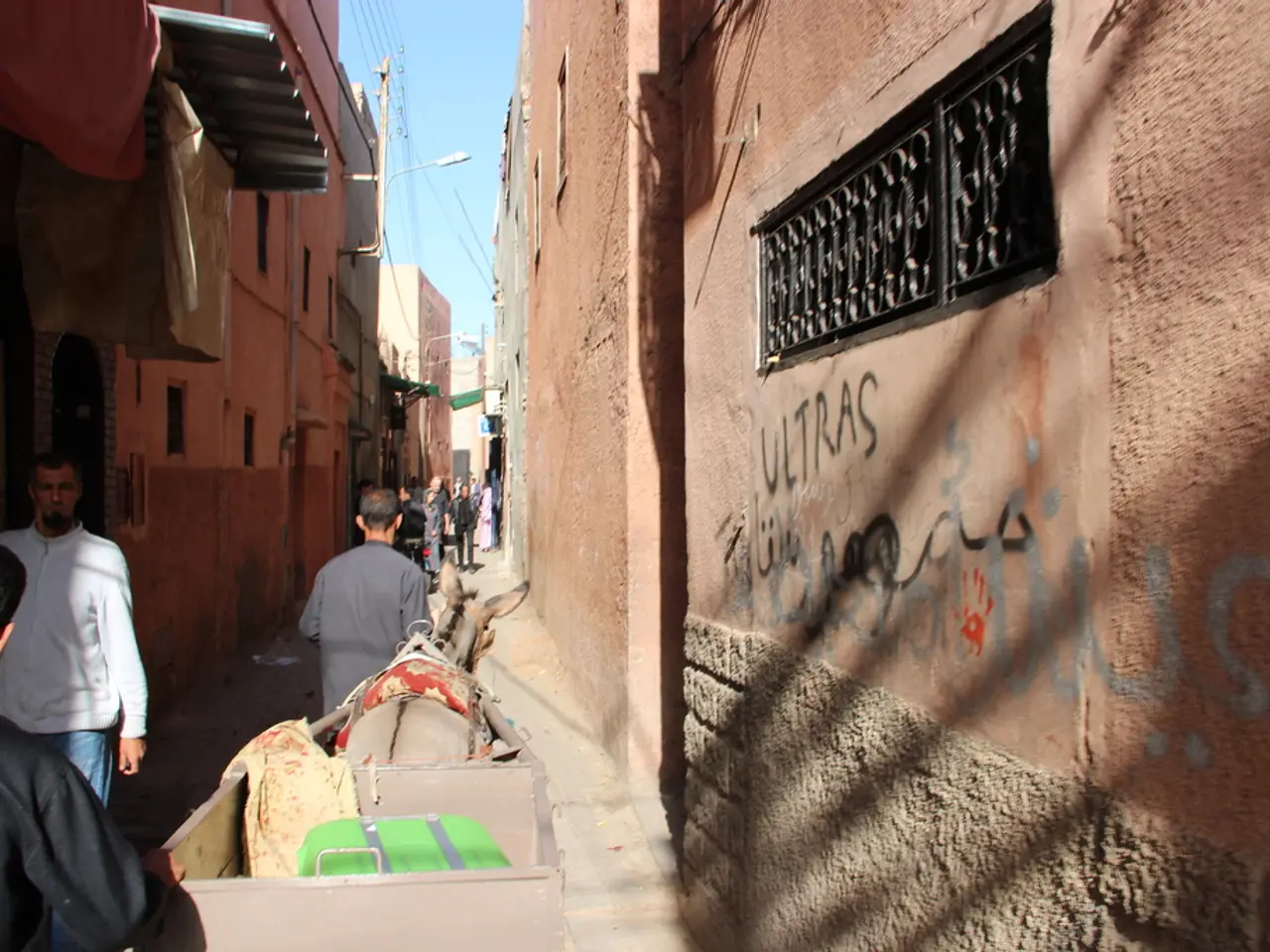Intensified Earthquake Sequence in Santorini: Highly Unlikely to Ignite Volcanic Eruption
Santorini, a Greek island famously situated on the exposed part of the Santorini caldera, an underwater volcano, has been the centre of attention recently due to a series of earthquakes. The current status of the ongoing earthquake swarm shows ongoing seismic activity characterized by multiple earthquakes occurring daily beneath the volcano.
From August 7 to August 12, 2025, earthquake swarm events were recorded with magnitudes ranging up to around 3-4, with dozens of quakes occurring within roughly 18-21 hour periods each day [1][2][3][4]. Hypocenter depths varied but this pattern of frequent shallow earthquakes under the volcano persists.
The location of the recent earthquakes is approximately 4.4 miles northeast of Santorini, with the strongest earthquake recorded so far registering at a magnitude of 5, striking 21 miles northeast of Santorini [6]. The majority of recent earthquakes are clustered between the Kolumbo volcano and the island of Anydros.
Despite the seismic activity, there is no direct correlation with volcanic eruptions at present. The earthquakes are attributed to tectonic plate movement rather than volcanic activity [7]. However, the unpredictability of underwater systems supplying magma to volcanoes remains a concern for researchers and local authorities [8].
Greek authorities, scientists, and residents are keeping a watchful eye on the seismic activity in the region. Emergency personnel have been deployed, reflecting heightened alertness due to the earthquake swarm potentially indicating magma movement or pressurization beneath Santorini’s volcanic system [5].
David Pyle, an Earth sciences professor at the University of Oxford, suggests that the quakes are likely a result of fault movements within the region. The Aegean Sea's geological setting involves a small crustal plate that stretches as the African plate slides beneath the Eurasian plate, contributing to the unique geological conditions in the area [9].
The Minoan eruption, one of the most significant volcanic events in human history, occurred in Santorini in 1600 B.C., and the island's volcanic history dates back to this event. The Kolumbo volcano last erupted in 1650 [10].
While the current earthquake swarm does not necessarily indicate an imminent volcanic eruption, the situation continues to be closely monitored by volcanologists. The ongoing earthquake swarm near Santorini and Kolumbo has experts monitoring the situation closely, as the current series of earthquakes appears more severe and widespread than previous events near Santorini [11].
In summary, the ongoing earthquake swarm beneath Santorini remains active with frequent shallow earthquakes over recent days, suggesting ongoing volcanic unrest and prompting official concern about a potential volcanic eruption in the near future [1][2][3][4][5].
References:
- GeoNet
- SMN Weekly Volcanic Activity Report
- Volcano Discovery
- USGS Volcano Hazards Program
- Greek Reporter
- European-Mediterranean Seismological Centre
- BBC News
- Nature
- National Geographic
- Britannica
- Scientific American
- The ongoing earthquake swarm beneath Santorini, an event closely monitored by volcanologists, raises concerns in the field of environmental science due to its potential link with volcanic activity.
- As the earthquake swarm near Santorini and Kolumbo continues, general news outlets are reporting heightened political discussions regarding emergency preparedness and disaster management in the region.
- In light of the ongoing earthquake swarm and its impact on the island's volcanic system, climate-change researchers are also investigating the potential consequences on the local environment and ecosystems, particularly in the Aegean Sea.






